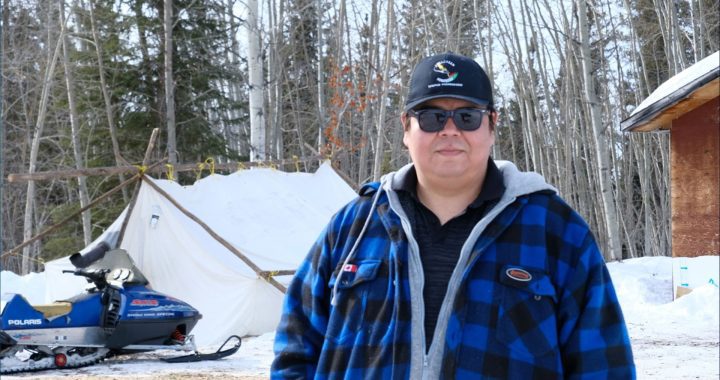(One of the thousands of protestors who have made the Oceti Sakowin camp home to protest the Dakota Access pipeline. A U.S. Federal court judge denied a request to have the company stop drilling under Lake Oahe.)
APTN National News
A U.S. Federal court judge has denied the Cheyenne River Sioux Tribe’s request to immediately stop the drilling of the Dakota Access pipeline under Lake Oahe.
The decision was released after a hearing Monday.
The Standing Rock and Cheyenne River Sioux had asked for a temporary restraining order to halt the work on the disputed section of the pipeline until their lawsuit seeking to stop it is resolved.
U.S. President Donald Trump issued a directive last month to complete the four-state pipeline.
The directive ordered the U.S. Army Corps of Engineers to grant the pipeline an easement to burrow beneath Lake Oahe, a reservoir on the Missouri River from where Standing Rock draws its water. The Army is involved because its engineering branch manages the river and its system of hydroelectric dams, which is owned by the federal government.
The Cheyenne River Sioux and the Standing Rock Sioux Tribes are both in court trying to put the pipeline on hold.
Judge James E. Boasberg also ordered the company responsible for the pipeline to report back to the court Feb. 21 with an update on when oil will start to flow underneath Lake Oahe.
The project has been opposed by thousands of people who converged on the area in the summer and fall of 2016. Hundreds were arrested during that time when water protectors clashed with local and state police.
The court will hear another motion from the Cheyenne Sioux Tribe on an injunction Feb. 27.
Texas-based Energy Transfer Partners received final approval from the Army last week to lay pipe under a Missouri River reservoir in North Dakota and complete the 1,200-mile pipeline, which would move North Dakota oil to a shipping point in Illinois. Drilling work began immediately under Lake Oahe, which is the water source for both tribes.
The tribes in a lawsuit filed last summer argue the pipeline threatens their drinking water and cultural sites. They now also argue that it would threaten their right to practice the Sioux religion, which they say requires clean water.
“The Corps has authorized activities under Lake Oahe that will substantially burden the tribe’s free exercise of religious rituals that depend on the purity of water from the river,” Standing Rock attorney Jan Hasselman said in court documents, referring to the Army Corps of Engineers.
The company’s attorneys filed court documents early Monday urging Boasberg to reject the tribes’ request, calling the new religious freedom argument “exceedingly tardy,” ”not construction-related“ and a ”last-minute delay tactic.“
“Dakota Access has the greatest respect for the religious beliefs and traditions of (tribes). The emergency relief sought here simply is not necessary to protect the exercise of those beliefs or preserve those traditions,” wrote William Scherman, an attorney for the company.
The drilling work is expected to take about two months. The full pipeline system could be operational within three months.
Energy Transfer Partners maintains that the pipeline is safe and disputes that cultural sites have been affected.
The camp has thinned to fewer than 300 people, but law enforcement officers continue to maintain a presence in the area.









